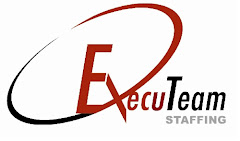
What your body language says is often more important than what you say verbally, especially when the two conflict. When they’re in sync, your movements are a reflection of what you’re thinking and what you’re feeling: your conscious and your unconscious. But when they aren’t, the unconscious prevails.
Why? Because while people will make themselves conscious of their words, few are conscious of their feelings and how that translates into body language, much less what that body language is saying. And in an interview, that can result in sending a message opposite what you intend.
A person who was recently fired or laid off is a good example of this dichotomy, especially when the termination takes place for reasons that have little to do with any situation the individual instigated. You did nothing to cause the severance, but you feel responsible anyway.
Since few job seekers know how to put a termination in perspective and handle it appropriately, it comes out how they move and how they conduct themselves. Almost every action is an apology. You knock gently on the door when the administrative assistant says, “Mr. Jackson can see you now.” You not only ask permission to sit, but you ask which chair. You either over explain or under answer.
Instead of speaking smoothly in a relaxed manner, your voice is too loud or can’t be heard. You say “um” or “ah” at the beginning and in the middle of your sentences. Everything about you screams insecure, even though you’re managing to articulate your accomplishments.
The result is that the hiring authority is puzzled as to how you managed to achieve so much, when your manner isn’t conducive to making things happen. It leaves him with a question about you. Hiring authorities don’t like to be left with questions; they want to be 100% confident of who they hire. So you’re out of the picture.
But this conflict doesn’t only occur with those have been dismissed by their employer. It can also happen when someone doesn’t have a degree, but has excelled in their career and frequently ends up competing with those who do. Or when you’ve been unemployed a long time, and you really need a job. Or if you’ve had your eye on being part of this company and finally you’ve snagged an interview. Or if you’re just plain insecure.
There’s a plethora of articles that list hundreds of body language cues you should pay attention to. But that’s like trying to learn the different interview styles and how to respond to each one. It’s a waste of time. You’ll spend so much time trying to remember what to do, how to do it, when to do it, if what you’re doing is correct or not, that it becomes difficult to focus on selling yourself and learning if the company is compatible with who you are and what you want.
It starts with your head. If you don’t feel confident, then stop thinking you aren’t. Find the reasons why you’re an asset to a company. List your skills and contributions. Put together a sales pitch on yourself, and then take it to heart. Actions mirror thoughts and thoughts mirror actions. When you’re thinking confidently, you behave confidently and vice versa.
At the same time, you can program one to follow the other. Pay attention to yourself, what you’re feeling and what’s going on around you. If you notice yourself shuffling in through the company door, pick your head up, put a smile on your face, and walk into the office as if you belong there, because you do. You have an interview, and they’re expecting you.
An interview is a sales presentation. You’re the product, and the hiring authority is the buyer. If you’re communicating that you’re not good enough to be hired, why would a company think differently?
- Judi Perkins
From www.net-temps.com






